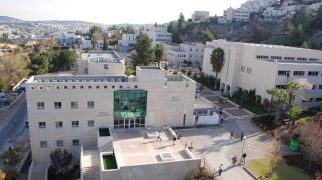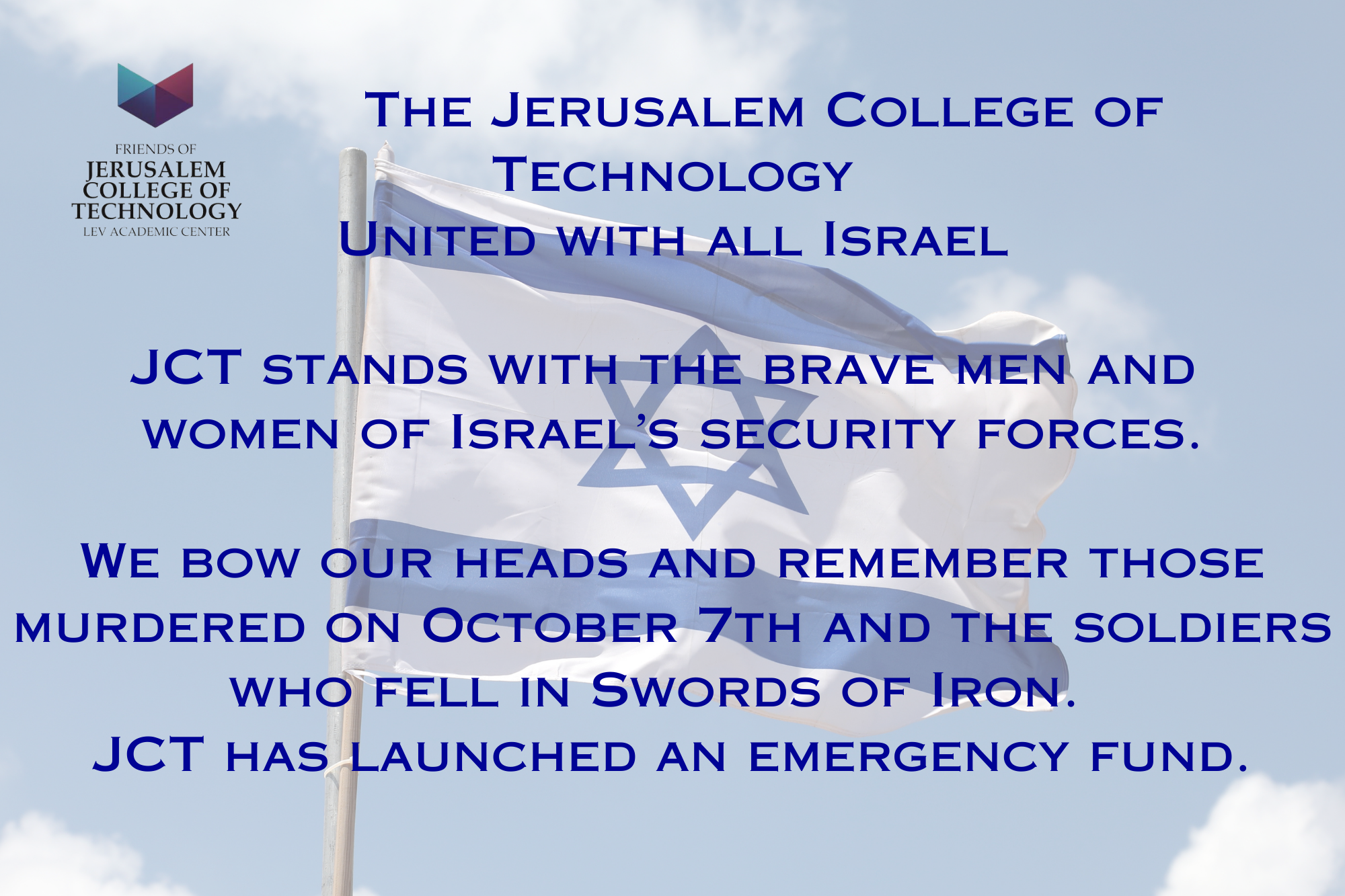Approximately 15 students teamed up with others members of Jerusalem’s high tech community at the Margalit Start-Up City event at the end of last year
January 12, 2023
The Jerusalem College of Technology has teamed up with other members of the capital’s high-tech community – academic institutions, venture capital funds, companies and entrepreneurs – in a hackathon aiming to enhance Israel’s public diplomacy efforts across a variety of digital platforms.
Kicking off last week at Margalit Start-Up City in Jerusalem, some 15 JCT students joined approximately 100 highly experienced programmers, product managers, project managers, and marketing and social media experts who volunteered in the hackathon. Participants brainstormed innovative technological developments with the goal of improving how Israel conveys its messaging in the war against Hamas.
Over the course of 48 hours, 15 teams addressed a myriad of challenges to identify the shortcomings of Israel’s current PR battle. Some of those challenges touched on combating disinformation, addressing anti-Israel messages on social media, and creating tools that monitor and analyze trends dealing with anti-Israel content online.
One group of JCT and Hebrew University students brainstormed ways to automatically remove copyrighted posts on social media. Many of them are used to defame Israel, while some aren’t even related to the Jewish state, or are photos of events that occurred years ago used to mislead the public by making it seem like they were taken during this current war. By locating the source of the image, it is possible to prove to the social network that it violates copyright rules. As such, the social network is required to remove the post, or it could be subjected to a lawsuit.
Another group, which consisted of JCT students and a high-tech executive, created a search engine to identify trends on social media. The purpose of this is to gauge how Israel can influence the conversation around the war. For instance, if an incident occurs and Israel provides an official response as to why it happened, this tool can help assess to what extent people on social media have spoken about Israel’s answer to that specific question letting the country know if its messaging is resonating or not.
Another group of mostly JCT students worked on finding ways to remove hostile posts and boost visibility for positive ones through a Google Chrome extension, which allows the user to note if the post is pro or anti-Israel. Anyone who downloads the plugin can report the post to social media authorities, or alternatively, support a pro-Israel post.
Finally, another group worked on figuring out why TikTok removes a lot of pro-Israel content. TikTok’s official reason for this is that the posts violate advertising rules. As such, this plug-in uses AI to automatically check that the post is compliant with TikTok rules. Additionally, the tool can decipher if anti-Israel content does violate TikTok regulations and if they do, the user has an option to report them so they can be taken down.
The teams included participants from across the Israeli spectrum – from secular to religious and ultra-Orthodox, and from the center to the periphery. From upscaling Israel’s messaging to combating anti-Israel posts using copyrighted materials to translating content, the hackathon challenges ran the gamut in the realm of navigating today’s digital world.
“The Jerusalem high-tech community is unique, mainly due to the diversity of its population. Its residents have a broad spectrum of worldviews and talents, which enable each of them to come up with different ways to address challenges,” David Saranga, head of digital communications at the Foreign Ministry. said. “We’re very impressed with the solutions we saw, and we thank everyone who participated. Ultimately, these solutions should be incorporated into our global digital strategy either through the ministry itself or another independent body. These solutions have the potential to help explain the legitimacy of Israel’s actions around the world and to help it achieve its security goals.
Yonatan Segir, a strategy and innovation consultant at the hackathon, said, “The fight for winning global public opinion has turned this entire country into activists. Advocating for Israel is a full-time job that requires broad knowledge, excellent communication skills and charisma. But their voices aren’t heard enough, and this is where this community can come in. This community can mobilize to combat the growing tide of anti-Israel and antisemitic sentiment we’re seeing online. We’re all in this together – government, academia and citizens.”
The hackathon was launched as a collaboration between the Foreign Ministry, Jerusalem and Heritage ministries, the Jerusalem Municipality, the Jerusalem Development Authority, Jerusalem Venture Partners, Hadassah College, and Made in JLM. Among the participating companies were Mobileye, Lightricks, Intel, NVIDIA, LABS02, cnvrg.io, MalamTeam, Cross River, and more.
Printed in Israel Hayom https://www.israelhayom.com/2023/12/14/jerusalem-college-of-technology-aids-israel-in-public-diplomacy-battle/




